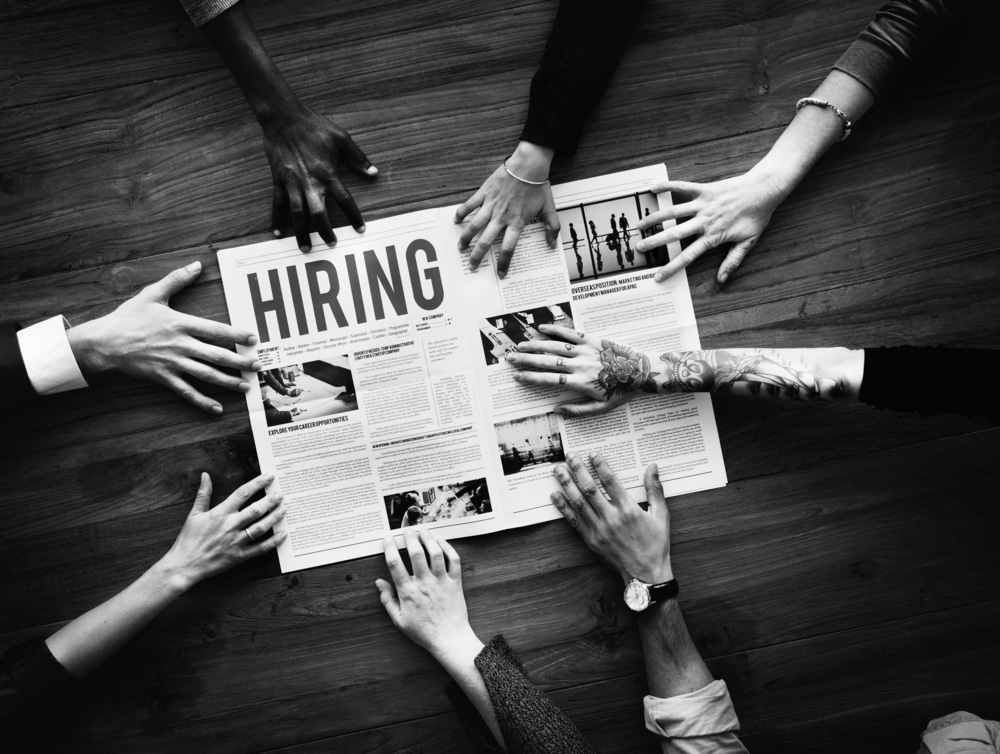Companies—and individuals—are in survival mode right now, facing difficult decisions amid COVID-19 restrictions. Companies are making moves to insulate their businesses from the pandemic’s effects. However, layoffs have already become unavoidable for some industries, while others are in full hiring mode.
When Glassdoor released its 2020 Best Places to Work list in December of last year, the world was a much different place. The unemployment rate was historically low, there were more job openings in the market than qualified candidates, and the war for talent was at an all-time high—in other words, COVID-19 had yet to hit the United States.
Now, companies are met with a once-in-a-generation opportunity to demonstrate what their company values are really made of and that they stand by their words—through the good times and the bad.
What Current Jobseekers Are Experiencing
With the current pandemic, it’s important to look at the job market from all perspectives, which includes candidates in the midst of job searching. What are they seeing as they search? What unique challenges take place when interviewing remotely?
We asked some of the candidates we work with to share their unique view on jobseekers during the coronavirus pandemic. Here’s their take on what candidates are currently experiencing.
Have you had to change the answers and advice you give to candidates because of the change in the economy and public health measures (social distancing, stay at home, etc.)?
“The hiring process can take longer at some companies at this time, but it’s important for job candidates to stay positive and patient, continuing to show their interest in the company and in the position that they seek,” said coach Lisa. “Right now, I’m coaching a job candidate who’s in the second round of interviews with three different companies. The processes are moving more slowly but are clearly progressing.”
What are your tips for helping a candidate stand out in today’s job search reality?
“Things are more challenging right now, but there are many companies that are still hiring,” said coach Natalie. “In fact, one of our job candidates just took a position as VP of HR. He began work on April 6 via a telecommute arrangement through the end of the month. Then, he’ll live in an apartment in Los Angeles during the week, returning home on weekends. It’s a win-win situation for both sides.”
Which companies are hiring, or have increased their hiring, during this time?
“While some industries are struggling, others are actually expanding—sometimes rapidly,” said coach Lisa. “I coached a candidate who was recently hired as a program manager lead with Microsoft, starting his new job on March 30. Other tech organizations, like Slack, Zoom, and digital learning companies, are growing and have many opportunities, as well.”
What Companies Can Learn from Current Jobseekers
If your business wants to recruit top talent, you must convince these individuals it’s in their best interest to join your company. This is where having a strong employer brand can give you an edge over your competitors. No one wants to work for a company that has a bad reputation, and you can be sure that any good candidate will conduct his or her fair share of research before even agreeing to an interview.
In short, your employer brand can mean the difference between quality recruiting for top talent in a competitive marketplace and settling for second-tier candidates who are not the right fit for your business. While it may seem like a small difference, the cost is high, and it’s imperative to take a proactive approach.
According to a 2019 study by LinkedIn, 75% of jobseekers examine a business’s brand before applying, and over 50% of potential candidates check out the company’s website and social media channels, such as LinkedIn, to learn more about the employer.
An important aspect to keep in mind is delivering a positive candidate experience. The candidate experience extends from the hiring process until termination. It’s the life cycle of the potential employee’s experience with your company.
Remember: Bad news travels fast. According to the Human Capital Institute, 60% of job candidates state that they’ve had a negative experience with a company; 72% share their bad experience online. And, if that’s not enough, 55% of candidates avoid companies that have negative online reviews.
Potential candidates begin to form an opinion of your company as they’re learning about you, completing an application, and participating in the hiring process, as well as once they’re hired.
To deliver a positive candidate experience, streamline your application process. Don’t expect candidates to trudge through a lengthy and complicated online application. Give applicants the option to upload their résumé on their smartphone or apply with the click of a button through LinkedIn. By failing to simplify the recruiting process, you run the risk of potential candidates abandoning the application process in favor of another company.
Finally, provide constructive interview feedback as often as you can. If a jobseeker didn’t get a job offer, talk to the person about his or her interview. Candidates appreciate valuable feedback during their interviews that they can use at other employers.
While dealing with the coronavirus seems to drag on every week, the pandemic will pass. What will, however, live on is your employer brand. As Mark Cuban said in a CNBC special report, how companies treat employees during this time “is going to define their brand for decades.”
If employees are the key to creating long-term value, companies and HR leaders should take extra care to protect and support them because just as there once was a time before COVID-19 (and we’re living in the time of COVID-19 now), there will also come a time after COVID-19, and you can bet your employer brand will be either your company’s greatest ally or your company’s greatest threat through it all.
Joyce Domijan is the Vice President of Strategy and Program Development at CareerArc.
The post Career Coaches Weigh In: Improving the Hiring Process During COVID-19 appeared first on HR Daily Advisor.
